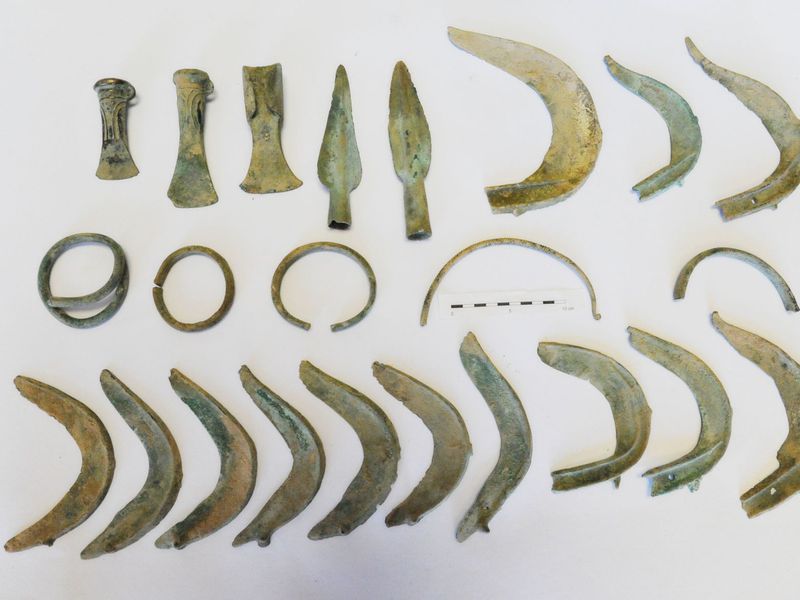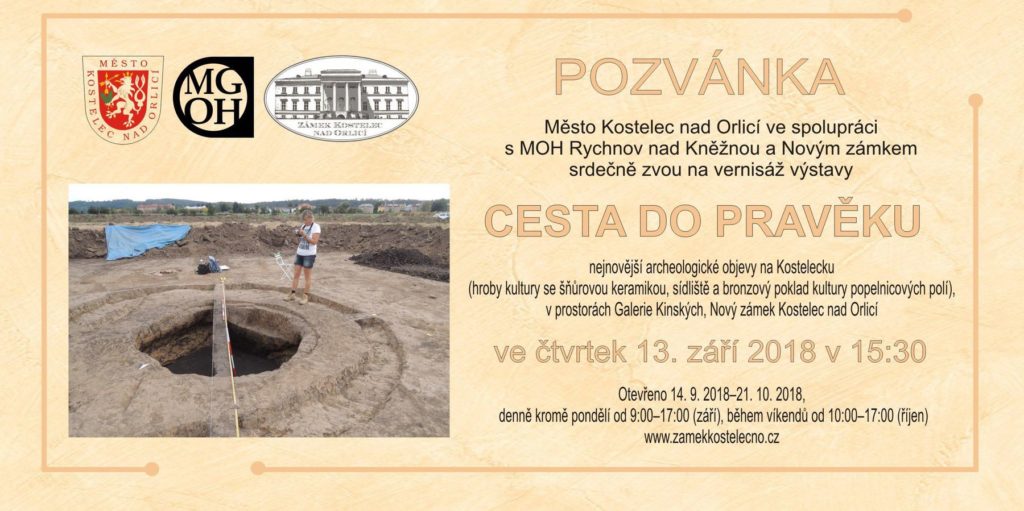Art World
A Dog Named Monty Has Dug Up a Rare Cache of Bronze Age Artifacts in the Czech Republic
The objects in the trove are 3,000 years old.

The objects in the trove are 3,000 years old.

Sarah Cascone

Is this the world’s least likely archaeologist? A dog named Monty, who was out for a walk in the Czech village of Kostelecké Horky this past March, began excitedly digging in a field when he, miraculously, discovered a buried cache of rare Bronze Age artifacts.
The dog helped uncover 13 sickles, two spear points, three axes, and a number of bracelets, all around 3,000 years old. Monty’s owner, identified only as “Mr. Frankota,” received a 7,860 CZK ($360) reward for turning over the artifacts, Smithsonian magazine reports.
“The fact that there are so many objects in one place is almost certainly tied to an act of honoration, most likely a sacrifice of some sorts,” archaeologist Martina Beková, of the Museum and Gallery of Orlické Mountains in Rychnov told Radio Praha. “What particularly surprised us was that the objects were whole, because the culture that lived here at the time normally just buried fragments, often melted as well. These objects are beautiful, but the fact that they are complete and in good condition is of much more value to us.”
Archaeologists believe the artifacts are from the Urnfield period of the late European Bronze Age, named for the communities that were increasingly cremating their dead and burying them in urns.

A flyer for the town of Kostelec nad Orlicí’s exhibition “Journey to the Beginning of Time,” featuring Bronze Age artifacts discovered by a local dog named Monty. Image courtesy of Hradec Králové Region.
The artifacts are currently on view in the town of Kostelec nad Orlicí through September 21 as part of the exhibition “Journey to the Beginning of Time.” The ancient objects will then undergo conservation before being put on permanent display at the Kostelec palace.
Monty’s sharp nose has left the experts wondering what else might be uncovered in the area. “Archaeologists have searched the surrounding fields with metal detectors,” Sylvie Velčovská, a spokesperson for the Hradec Králové Region, told Radio Praha. Though nothing else has turned up yet, “there were some considerable changes to the surrounding terrain over the centuries, so it is possible that the deeper layers are still hiding some secrets.“